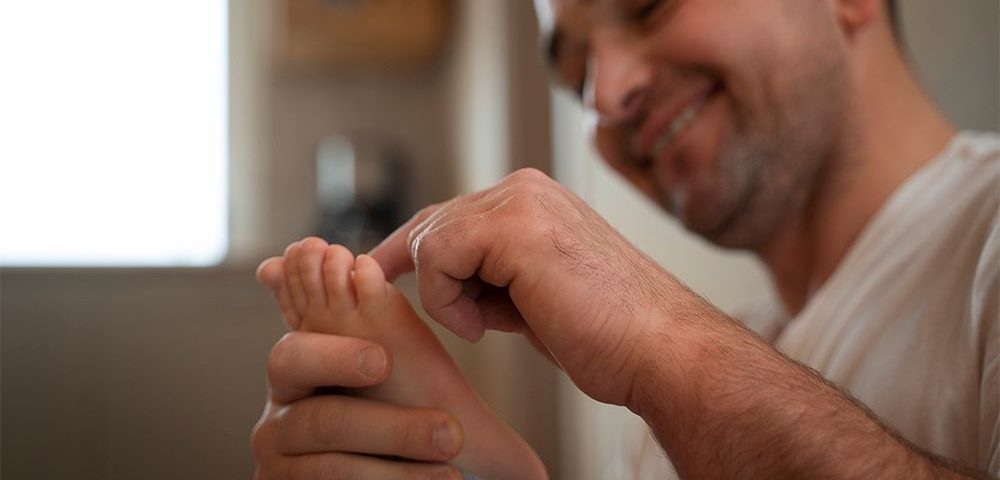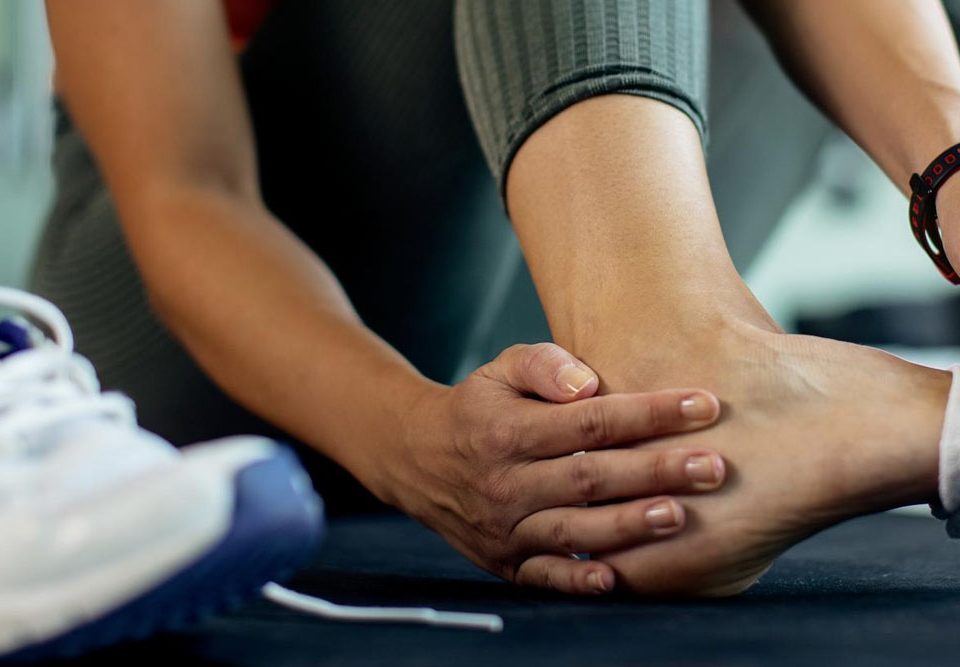
What Are the 9 Early Signs of Diabetes in the Feet?
June 19, 2025
Are Bunions More Common in Women?
June 26, 2025You have ingrown toenails when the edge of your toenail grows into the skin around it. It causes pain, redness, and sometimes infection. This problem is common, but are ingrown toenails hereditary? Keep reading to find out if genetic ingrown toenails are a thing and how to manage the condition.
Table of Contents
ToggleCan Ingrown Toenails Be Genetic?
Yes, ingrown toenails can be genetic. If someone in your family, like a parent or sibling, has had ingrown toenails, there’s a chance you might get them, too. It’s estimated that about 20-30% of people who get ingrown toenails have a family member who also had the problem.
When ingrown toenails are genetic, it’s often because of the way your toenails and feet are shaped. Some people have toenails that naturally grow in a curved way, which makes them more likely to dig into the skin. If you inherit this shape, you might be more likely to get ingrown toenails and need treatments.
Other reasons you might get genetic ingrown toenails include:
- Toenail Shape: If your nails are thick or curved, they may push into the skin.
- Foot Shape: If you have wide feet or toes that don’t align properly, there could be extra pressure on your nails, which can cause them to become ingrown.
- Footwear: Even though not strictly genetic, if you have feet that don’t fit well in shoes, this can worsen the problem. People with certain foot shapes may struggle to find shoes that don’t put pressure on the toes.
Even though genetics play a big role, you may still develop ingrown toenails from other causes like injury or wearing tight shoes. But if you have a family history of them, the chances of you getting ingrown toenails go up.
How Can You Tell If Your Ingrown Toenail is Genetic?
To tell if your ingrown toenail is genetic, look at your family history. If your parents, siblings, or other close relatives have had this issue, it’s likely that you might get it, too. The more people in your family who have had ingrown toenails, the more likely it is that your toenail problems are genetic.
You can also tell by looking at your toenails. If they tend to be naturally thick or curved, or if they grow at an angle, they may push into your skin. Even if you trim your nails properly, they might still grow into the skin if they are shaped in this way. A Chandler podiatrist or foot doctor can help you figure out whether the problem is genetic by looking at your nails and asking about your family history. They might also check your feet to see if there are any structural issues that could be contributing to the ingrown nails.
How to Stop Genetic Ingrown Toenails?
While it’s tough to completely stop genetic ingrown toenails, there are ways to reduce the chance of them happening and help ease the pain if you have them.3
- When trimming and cutting your nails, make sure to cut them straight across. Don’t round the edges, as this can make the nails grow into the skin.
- Shoes that are too tight or don’t have enough room for your toes can make ingrown toenails worse. Choose shoes that fit comfortably, especially in the toe area.
- Soaking your feet and nails in warm water with Epsom salt can help reduce swelling and make the area feel better. It also helps to soften the skin around the toenail.
- If your ingrown toenail is hurting, using padding or a toe protector can reduce the pressure and prevent more irritation.
- If your ingrown toenail gets infected, a foot doctor may suggest an antibiotic ointment or medicine to help clear it up.
- In more severe cases, you may need surgery. A foot doctor may remove part or all of the ingrown toenails. It helps in preventing the toenail from growing back incorrectly.
Genetic ingrown toenails are challenging, but these treatments can make a big difference in how often they happen and how much pain they cause.
Genetic Ingrown Toenails Treatments in Phoenix, Arizona
If you’re dealing with genetic ingrown toenails, Foot and Ankle Specialty Centers is here to provide the care you need. Our expert team across our locations in Gilbert, Scottsdale, Chandler, Mesa, and Phoenix offers personalized toenail care advice to help you properly trim and care for your nails at home. We also provide surgical solutions for severe or recurring cases to prevent further issues.
Schedule a diagnosis appointment today and get ahead of your foot problems.
Let’s Recap
Genetic ingrown toenails are a common problem, especially for those with a family history of the condition. Even though they can be tough to prevent, there are ways to reduce the pain and stop them from getting worse. If you notice signs of genetic ingrown toenails, it’s important to talk to a foot specialist.
FAQs
Is ingrown toenail genetic?
Yes, ingrown toenails can be genetic. If someone in your family has had them, you are more likely to get them, too.
Are ingrown toenails deadly?
No, ingrown toenails are not deadly, but they can be painful and lead to infection if not treated properly.
Can ingrown toenails be inherited?
Yes, ingrown toenails can be inherited. If your family has a history of them, there’s a higher chance you might get them, too.




